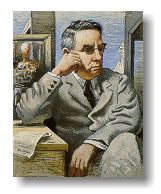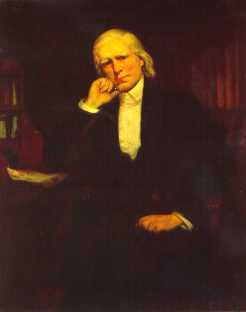Related Topics
Art in Philadelphia
The history of art, particularly painting and sculpture, has been a long and distinguished one. If you add in the art schools, the Philadelphia national influence on artists has been a dominant one.
Philadelphia Legal Scene
The American legal profession grew up in this town, creating institutions and traditions that set the style for everyone else. Boston, New York and Washington have lots of influential lawyers, but Philadelphia shapes the legal profession.
Personal Finance
The rules of financial health are simple, but remarkably hard to follow. Be frugal in order to save, use your savings to buy the whole market not parts of it, if this system ain't broke, don't fix it. And don't underestimate your longevity.
Touring Philadelphia's Western Regions
Philadelpia County had two hundred farms in 1950, but is now thickly settled in all directions. Western regions along the Schuylkill are still spread out somewhat; with many historic estates.
The Main Line
Like all cities, Philadelphia is filling in and choking up with subdivisions and development, in all directions from the center. The last place to fill up is the Welsh Barony, a tip of which can be said to extend all the way in town to the Art Museum.
Donor Intent
At least three of the greatest treasures of Philadelphia are now used in ways that almost certainly flout the expressed wishes of the donor. Steven Girard's

|
| Alfred Barnes |
bequest for the enhancement of "poor, white, orphan boys" is now devoted mostly to black children, many of the girls, many of them non-poor by some definitions, and many of them orphans only in a limited sense. Alfred Barnes wanted his art treasures to be used for education, outside the city of Philadelphia which had offended him, and definitely not part of the Philadelphia Museum of Art which he disliked. They are now to be moved to Philadelphia's Parkway, close to and under the thumb of, the Philadelphia Museum of Art. John G. Johnson's immense art collection now resides within the Museum of Art in spite of the firm declaration by this eminent lawyer that it was to remain in his house, and definitely not to be used to promote some huge barn of a museum.

|
| William J Duane |
It's hard to imagine how any set of instructions could be devised to be more clear than these. Barnes employed a future Supreme Court Justice, Owen Roberts, to write his will. Girard similarly employed the preeminent counsel of his time, William J. Duane, to devise an extraordinarily detailed set of instructions. John G. Johnson was himself considered to be the most eminent lawyer in the city. In fact, he once received a fee of $50,000 for his opinion about a corporate financial plan, consisting of the single word "No" scrawled on its cover.
It would be interesting to know whether these famous cases are typical of the way wills are treated, either in this city or in the nation generally. Perhaps they are notorious mainly because they are so unusual. But perhaps they are indeed rather representative and stand as lurid examples of the general failure of the rule of law. Perhaps they reflect some deeper wisdom of the law, where Oliver Holmes intoned that the standard was not logic, but experience.
<Perhaps some guidance can be found in the decisions of Lewis van Dusen, Sr. who for several decades established the Orphans Court of Philadelphia as a model for the world to follow. Someone seems to have thought he set a good example. But was his reign an exception, or a glowing example of the triumph of society's wisdom over the crabbed grievances of dying millionaires in their dotage?
These remarks are made while the newspapers are filled with the story of a Texas billionaire who married a magazine model fifty years younger than himself. Some prominent local heiresses are known to have run off with their stable boys. Indeed, you don't need to read many tabloids to see a dozen examples of such behavior. Is it possible that some of them were acting up out of frustration at the probable betrayal by the courts of more reasoned instructions for their wealth?
Originally published: Thursday, February 22, 2007; most-recently modified: Thursday, May 16, 2019